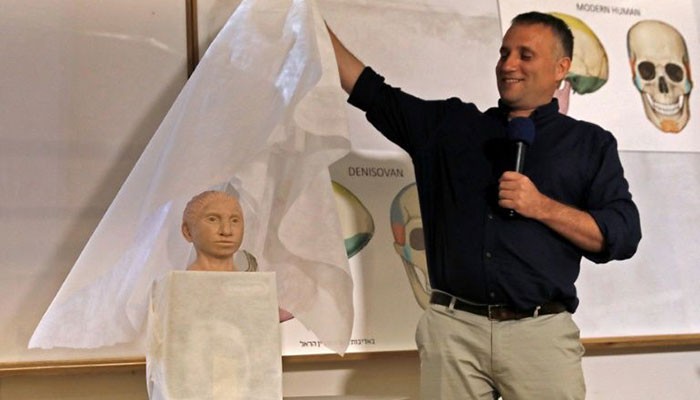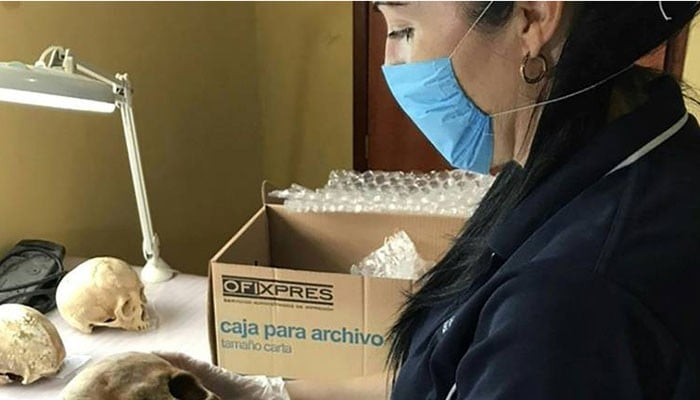Dr Nozair Khawaja: The Pakistani astrobiologist in search of life beyond Earth
Dr Khawaja believes Pakistan can present soft image through astrobiology research; therefore, he feels strongly about providing counseling to young minds
October 08, 2019
It all started with a question by a Scandinavian professor: 'What kind of research you want to pursue?"
Dr Nozair Khawaja replied: "I want to find out the signs of life — if any — on other planets in space."
After a decade and a half, that answer is "gradually" converting into a reality.
Dr Khawaja and his co-workers at Free University Berlin have discovered an important organic material that emerged from the subsurface ocean of Saturn's moon, Enceladus, and ejected from its south pole into the space as a plume of gas and ice grains. The research reveals new kinds of organic compounds — the ingredients of amino acids — that have been detected in the plumes bursting from Enceladus.
Speaking to Geo News, Dr Khawaja said similar compounds were part of chemical reactions in Earth's oceans that produce amino acids, the building blocks of life on the planet. Scientists believe Enceladus' hydrothermal vents may operate in the same way, supplying energy that leads to the production of amino acids, he added.
From Balochistan to Cambridge: A Pakistani's journey of success
The Pakistani astrobiologist's groundbreaking research about the essential organic molecules on Enceladus has found a place in the Monthly Notices of the Royal Astronomical Society (MNRAS). A team of world-class scientists from Germany and the United States, led by Dr Khawaja, is part of ongoing research into the data revealed by the National Aeronautics and Space Administration's (NASA) Cassini mission.
Cassini spacecraft collected a massive amount of data in its lifetime and scientists are continuously analyzing it to further unlock Enceladus' secrets. The latest results would provide support to plan future space missions with modern instruments towards extraterrestrial ocean worlds in the outer solar system, said Dr Khawaja.
NASA's Cassini mission
In 1997, NASA launched a Cassini space mission for a detailed study of Saturn, its rings, and moons. Seven years later, in 2004, it arrived at its destination, carrying several versatile instruments, including two mass spectrometers for the compositional research of ice grains and gas at the Saturnian System.
These included Cosmic Dust Analyser (CDA) and Ion & Neutral Mass Spectrometer (INMS).
Although Cassini's mission ended in September 2017, the data it provided will be analyzed for decades. Dr Khawaja's team used data from the spacecraft's CDA, which detected ice grains emitted from Enceladus into Saturn's E-ring.
In 2019, the Pakistani scientist was also awarded the 'Group Achievement Award' for Cassini's Cosmic Dust Analyzer (CDA) by NASA.
From Wazirabad to Berlin
Dr Khawaja grew up in a middle-class family in a small city of Punjab, named Wazirabad. He headed to Lahore to pursue a Master's degree in space sciences from the Punjab University and, then, to Scandinavia for higher education in Astronomy.
After that, through his PhD in Geosciences from Germany's Heidelberg University, he began working on NASA's Cassini space mission towards Saturn.
Paying back to the homeland
Dr Khawaja wishes to organize public lectures in Pakistan's schools, colleges, and universities to spread awareness about the fascinating field of astrobiology.
He told Geo News that in Pakistan, he has established a network of volunteers called Astrobiology Network of Pakistan (ABNP), which includes scientists from Germany and the US, along with students and professionals from Pakistan.
Dr Khawaja believes that Pakistan can present its soft image through the research in astrobiology. Therefore, he feels a strong desire to provide career counselling to young minds interested in astrobiology and planetary sciences. Students from almost every branch of science have a vast scope in both fields, he noted.















